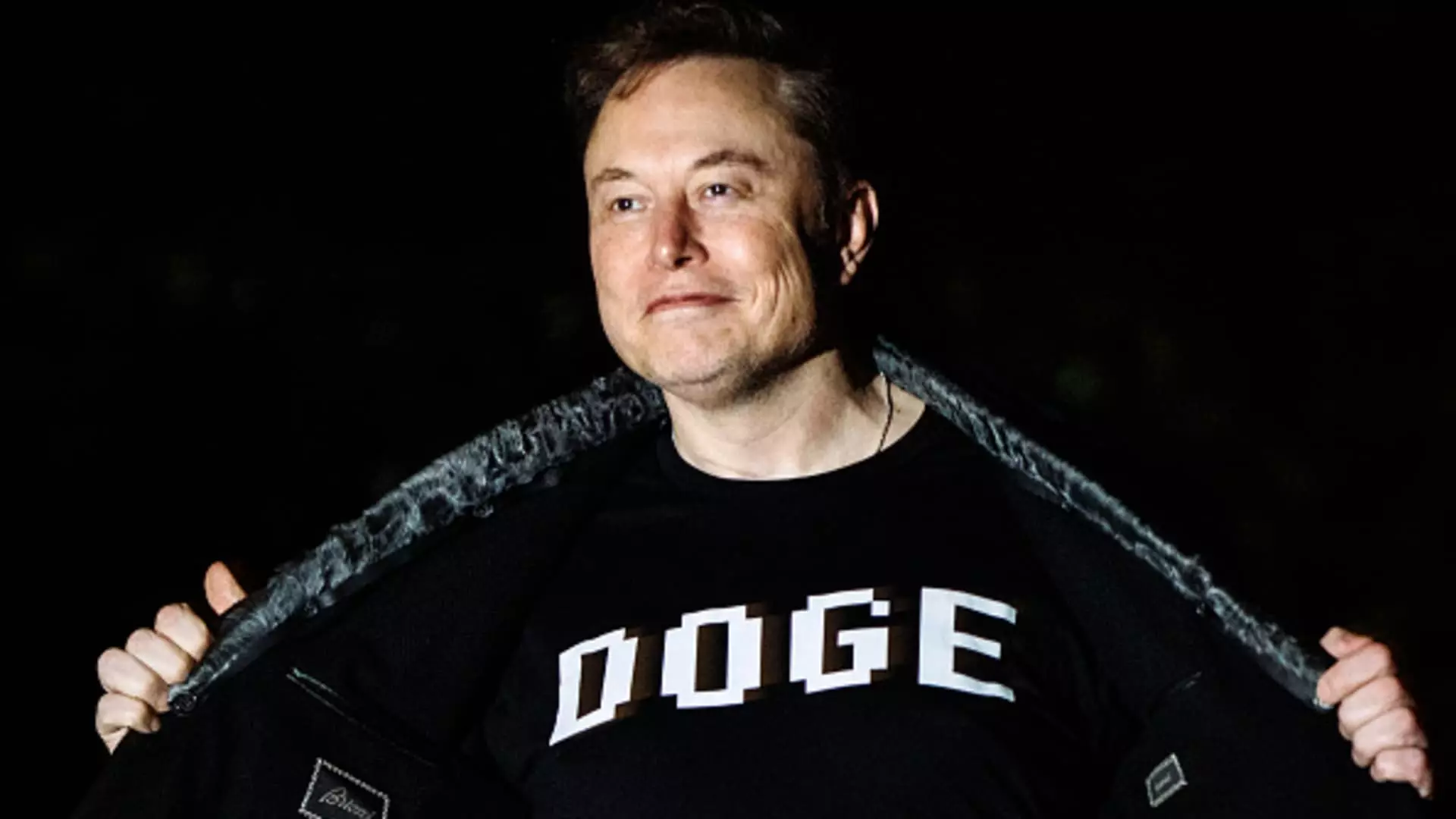In a world where electric vehicles (EVs) seem to be the forefront of automotive innovation, Tesla finds itself precariously balancing the demands of the market with the whims of its enigmatic CEO, Elon Musk. Recent reports indicated a potential shift in Musk’s busy schedule, possibly freeing him from his role at the Department of Government Efficiency to refocus on Tesla. This news sent shockwaves through the stock market, temporarily boosting Tesla’s shares by approximately 5%. However, this upswing masks a harsher truth: the company’s stock has plummeted over 31% this year alone, with a staggering 36% loss in the first quarter—the most severe decline since 2022.
Leadership Under Scrutiny
Musk’s dual role in both the corporate sphere and the political landscape seems to be creating a tangled web that is hard to navigate. Reports from Trump insiders suggest that while President Trump appreciates Musk’s efforts regarding government spending cuts, there is ripe speculation about the billionaire’s return to focusing on Tesla. This tumultuous interplay between Musk’s business commitments and his political involvements has been increasingly polarized, especially with rising protests against Tesla and international backlash against the company, all triggered by Musk’s controversial forays into the political realm.
The Financial Fallout
Tesla’s falling stock prices are not merely a reflection of market volatility; they stem from the broader implications of Musk’s engagement in political affairs, which has embroiled the company in controversy. Allegations of bias and the adverse reactions from both consumers and investors raise questions: Is Musk’s preoccupation with politics a distraction from the mission of advancing sustainable transport? Or, is his influence overshadowing the company’s innovations and branding efforts?
Adding fuel to the fire are Trump’s automotive tariffs, which have significant implications for Tesla’s supply chains, especially concerning parts sourced from Mexico and China. Supply chain vulnerabilities can impose severe risks on production timelines and profit margins, but the unintended consequences of Musk’s political adventures can be just as damaging to Tesla’s reputation.
Public Perception and Accountability
Musk has not shy away from voicing his grievances regarding Tesla’s performance and stock prices. At a recent rally in Wisconsin, he lamented about the significant loss of value for himself and other investors. Such candor might resonate with supporters, but it also raises eyebrows about leadership accountability at Tesla. Moreover, city officials, such as New York’s Comptroller Brad Lander, are directing calls for legal action against Tesla due to Musk’s unpredictable political engagements impacting investor confidence and pension funds.
The juxtaposition of Musk’s business and political personas creates a narrative filled with contradictions. On one hand, he is an innovator striving to revolutionize the automobile industry; on the other, he is a lightning rod for controversy that could ultimately undermine his company’s achievements. As Tesla navigates through these turbulent waters, the question persists: Can Musk compartmentalize his vast responsibilities to rejuvenate Tesla’s stock and public image or will this balancing act lead to more instability?

